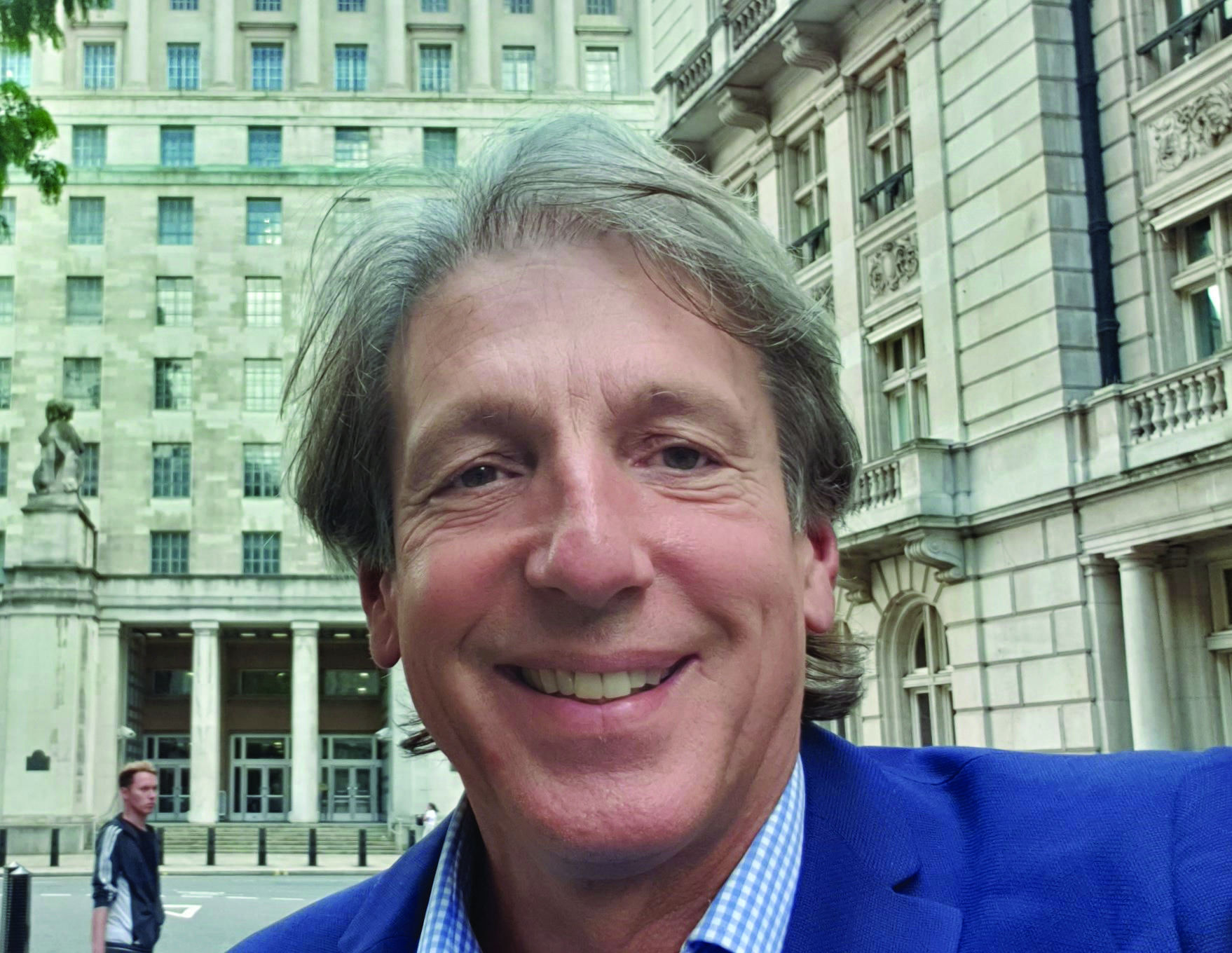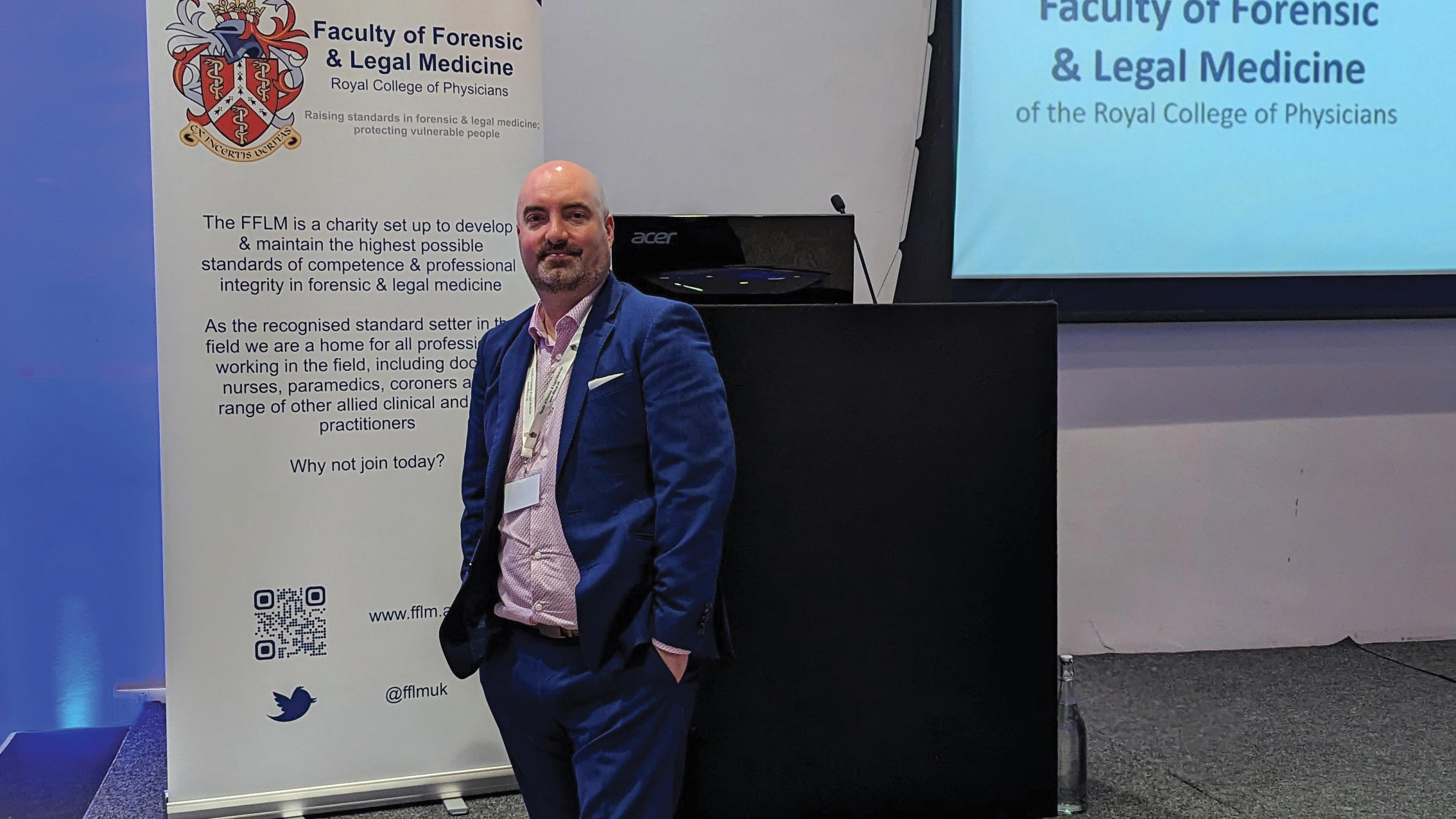Even after 33 years, Margaret Stark still loves the challenges and unpredictable nature of her work providing healthcare to those in police custody.
Serving as an FME (forensic medical examiner) for the Metropolitan Police, a typical day for Prof Stark might see her assess injuries and prescribe medication to a detainee, determine whether a suspect is fit to be interviewed by police and collect and document forensic samples as part of a criminal investigation.
Historically known as ‘police surgeons’, FMEs are today responsible not only for ensuring the health of those in police custody, but also for assessing and treating victims of crime in settings such as sexual-assault referral centres and providing expert testimony to courts.
It is possible that miscarriages of justice may occurProf Payne-James
Despite the demanding, complex and hugely important nature of an FME’s work, it is a role that often exists under the radar of the wider medical profession and one that, for a variety of reasons, faces an increasingly uncertain future.
‘Most people have no idea really about this area of practice,’ says Prof Stark. ‘I go in at half-past six in the morning and am embedded for 12 hours [so the work] is incredibly variable. It could be anything from prescribing two paracetamol for a detainee with a headache to taking forensic samples from rape suspects or drink drivers.
‘You also have to assess anybody who has a [long-term] medical condition such as asthma, diabetes or epilepsy and determine whether they’re fit to be detained. Then there are assessments for fitness to interview and determining whether the suspect knows what’s going on or whether they need an appropriate adult.’
Until 2003, healthcare and forensic medical services in police custody were provided solely by medical professionals working directly for a particular constabulary. In that year, however, a change in the law allowed other healthcare professionals such as nurses and paramedics to undertake this work.
Limited service
Having spent decades providing medical services to police stations in London, recent changes in the way care is delivered has seen Prof Stark increasingly having to limit her clinical expertise to a phone-based advice service, with direct care instead being provided by a nurse-led service.
‘In 2021 the Met got rid of doctors because they wanted a nurse-led service, but they can’t at the moment run the service without the doctors because there are too many gaps,’ says Prof Stark.
‘I think there will be a huge push to get rid of us completely, and I suppose our concern is where else in medicine are there no doctors?’ As with prison inmates and those detained in other secure environments, suspects in police custody should be afforded access to the same standard of healthcare they could expect to receive in the community.
 PAYNE-JAMES: Care models fragmented
PAYNE-JAMES: Care models fragmented
Unlike prisons and immigration-removal centres, however, the provision of healthcare within police custody settings in England and Wales does not automatically fall to the NHS but is instead commissioned at the discretion of individual forces’ police and crime commissioners.
Although a small number of police forces continue to employ doctors directly, the majority commission healthcare services from private-sector firms. These organisations tend to favour a model of service led by HCPs (healthcare professionals) such as nurses or paramedics, with some staff (including doctors) having limited experience of, and having received inappropriate training to prepare them for, working in police custody settings.
I am not aware of any other medical specialty where doctors have been removed because it improves careProf Payne-James
Under these HCP-led models, and without a national system for enforcing minimum standards in staff training and experience, there is concern as to what this might mean for the wellbeing of suspects and victims of crime and for the integrity of the justice system.
‘One of the most concerning things is we simply don’t know whether variability in healthcare, whether it be from doctors, nurses or paramedics, impacts on a broader clinical and criminal outcome,’ says consultant forensic physician Jason Payne-James.
‘If somebody, for example, documents an injury inadequately or takes a biological sample with poor technique or believes that somebody is fit to be interviewed when they’re not, it’s at that point where it is possible that miscarriages of justice may occur.
‘These miscarriages of justice could mean people who should have been convicted aren’t convicted because sampling or injury documentation has been inappropriate and conversely those who should not have been convicted are inappropriately convicted.’
Fragmented care
A specialist in forensic and legal medicine, Prof Payne-James is a renowned expert witness whose testimony is regularly sought by prosecution and defence counsel in criminal cases.
He last year co-authored a study into healthcare services in police custodial settings in England, Wales and Northern Ireland, which sought to gather information on how police forces delivered their forensic healthcare services, the types of healthcare professionals used, and the minimum experience, training and qualifications required of these staff.
Based on the findings of this study, Prof Payne-James says care models in police custody are hugely fragmented, resulting in a clinical-care postcode lottery in which many services have seen doctors replaced by underqualified HCPs.
‘I’m not naive enough to think that the police aren’t under huge pressure in the same way as every other public body in terms of finance, [but] I am not aware of any other medical specialty where doctors have been removed because it improves care,’ says Prof Payne-James.
‘The problem I think that we have with having some services funded by commercial private providers is that, inevitably, the commercial providers are there as businesses to generate income potential for shareholders.
‘It would seem sensible that every police service has exactly the same requirements in terms of minimum qualifications of the doctors, nurses and paramedics, which has been established, but it’s certainly not followed.’
 GORTON: Some police forces not meeting quality standards
GORTON: Some police forces not meeting quality standards
Quality standards concerning the level of training and experience of healthcare staff being employed to deliver custody healthcare do exist, having been developed by the Royal College of Physicians FFLM (Faculty of Forensic and Legal Medicine).
Forensic physician Alex Gorton believes, however, that many police forces treat these standards as advisory guidelines rather than something that should be strictly adhered to when commissioning services. As part of a 2022 paper Quality standards in forensic medicine, co-authored with Prof Stark, Dr Gorton argues: ‘Without a robust system enforcing agreed quality standards there is little incentive for such standards to be followed.
‘We know every healthcare model works better when you do have a true multidisciplinary team but, in reality, what we’re seeing on the ground is that we have leapfrogged multidisciplinary to be nurse or paramedic-only,’ he says.
‘These are advanced-practice roles, effectively diagnosing, treating and discharging independently, therefore if we are expecting nurses and paramedics to undertake them without any medical support we should be deploying [advanced clinical practitioners] or equivalents (these would normally attract band 7 or band 8 scales in the NHS). We don’t see these qualifications widely in custody as they are too expensive for the procurement envelopes so they aren’t being trained to that level.’
If you have more risk-averse clinicians, perhaps because they’re less well trained, they’re going to send more people to hospitalDr Gorton
Dr Gorton says one notable effect of having less experienced or inadequately trained staff working in custody settings is the increased likelihood for detainees with health complaints to be referred to hospital, thus placing strain on the police and the NHS.
‘One of the mantras in custody is “if in doubt, send them out” because obviously you don’t want a death in custody,’ Dr Gorton explains.
‘If you have more risk-averse clinicians, perhaps because they’re less well trained, they’re going to send more people to hospital. Every time you send a detainee from police custody to hospital, you’re sending two police officers with them.
‘With a modern emergency department wait, you’re looking at probably eight to 10 hours, so that’s two officers eight to 10 hours off the street, with a detainee and on top of that, the NHS is then providing that healthcare input.’
NHS transfer delay
Responsibility for the commissioning of police custody healthcare services in England and Wales had been set to transfer to the NHS, but the process was halted in 2016 by the then home secretary Theresa May.
This decision remains in effect despite the findings of a 2017 independent review into deaths and serious incidents in police custody, which stated that placing healthcare under the remit of the NHS would enable ‘a consistency of approach’ and ‘provide for minimum standards for medical staff within the police station’.
Although I love this work it seems to be a dying specialtyDr Gorton
Scotland is the only part of the UK in which police custody healthcare comes under the auspices of the NHS. ‘I’m not sure if it’s already too late. To be brutally honest although I love this work it seems to be a dying specialty with no space for doctors who want to keep doing it,’ laments Dr Gorton.
‘Police procurement seems focused on “bums on seats” filling rotas rather than recognising the need for specialist skills. This means there is little incentive for profit-focused providers to up their game. Politically it can be hard to argue for quality care of suspected perpetrators of offences, but, even if one takes that heartless view, high-quality assessment and support of alleged offenders increases quality of evidence and thus supports victims of crime.’
The issue of delivering effective healthcare in custody settings is set to be an area of focus of a one-day conference being staged by the BMA’s forensic and secure environments committee on 17 July.

